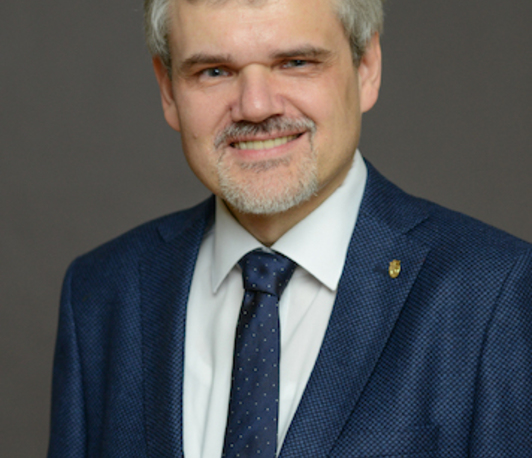Semantic real-time fMRI neurofeedback of emotions at 7 Tesla: from computational principles to clinical applications
- Datum: 23.05.2025
- Uhrzeit: 11:00 - 12:30
- Vortragende(r): Dr. Rainer Goebel
- Ort: MPI for Intelligent Systems, Max-Planck-Ring 4
- Raum: Room 203 + Zoom
- Gastgeber: Dr. Ivan de Araujo
- Kontakt: maydel.fernandez.alonso@tuebingen.mpg.de

Abstract: UHF (7+ Tesla) fMRI makes it possible to measure mesoscale structures, especially cortical layers and cortical columns. Such studies are advancing our understanding of higher-level cognitive functions such as mental imagery, working memory and consciousness as we will briefly demonstrate. The high SNR of UHF fMRI at lower voxel sizes (ca. 1.5mm) can also be beneficial for cognitive and clinical studies where laminar or columnar resolution is not required. The major part of my talk focuses on such an application. More specifically we have developed a novel type of real-time fMRI semantic neurofeedback of emotions as a potential treatment for depression. Using 3 Tesla we could earlier already show that patients suffering from major depression substantially benefitted from an ad-on fMRI neurofeedback treatment, providing activity feedback from patients’ emotion-related brain areas (Linden et al., 2012; Mehler et al., 2018). In these 3 T studies, the mean activity from emotional areas were provided in a thermometer-like display indicating to participants whether they succeeded in engaging in emotional mental states during neurofeedback blocks. This conventional neurofeedback of a univariate (mean) signal is, however, ‘blind’ with respect to emotional content, i.e. patients instructed to engage in a specific positive emotion could drive the neurofeedback signal by engaging in a different (positive or even negative) emotion. To overcome the limitations of conventional neurofeedback we proposed a new form of neurofeedback that displays semantic information of emotions to the participant (Goebel et al., 2024). In first pilot studies, semantic information is extracted online using real-time representational similarity analysis of emotion-specific activity patterns. The extracted semantic information can be provided to participants in a two-dimensional semantic map depicting the current mental state as a point reflecting its distance to pre-measured emotional mental states (e.g. ‘happy’, ‘content’, ‘sad’, ‘angry’). This new approach provides transparent feedback during self-regulation training, and it has the potential to enable more specific training effects for future therapeutic applications.
Bio: Rainer Goebel studied psychology and computer science in Marburg (1983-1988) and completed his PhD (summa cum laude) in 1994 at the TU Braunschweig, Germany. He received the Heinz Maier Leibnitz Advancement award in cognitive science in 1993, and the Heinz Billing award for scientific computing from the Max Planck Society in 1994. Between 1994 and 2000, he worked as a postdoc at the Max Planck Institute for Brain Research in Frankfurt/Main where he founded one of the first fMRI labs in Europe in 1995. In 2000 he started his full professorship of cognitive neuroscience at Maastricht University where he trained and supervised more than 75 PhD students and 40 postdocs. He is the initiator of the Maastricht ultra-high field MRI center that was officially opened by King Willem Alexander in 2013. He secured numerous grants, including twice an ERC Advanced grant, and over 10 years funding for his significant work and leadership role in the European Human Brain Project. Rainer Goebel is member of the Royal Netherlands Academy of Arts and Sciences (KNAW) and the German National Academy of Sciences (Leopoldina). He is also founder and CEO of the company Brain Innovation B.V. developing free and commercial software for neuroimaging data analysis and education.
Lab's webpage: https://www.brainvoyager.com/index.html
Access to the meeting: Zoom Link